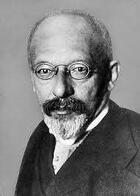
Georg Simmel (Berlin, 1858-Strasbourg, 1918) was part of the first generation of German sociologists, contributing to the consolidation of sociology as a science. He was a professor at the universities of Berlin (1885-1914) and Strasbourg (1914-1918), although due to his Jewish origin he had to face numerous barriers that prevented him from teaching. In his work he addressed the philosophy of history, sociology, ethics, art and metaphysics, being a pioneer in the analysis of individuality and social fragmentation. More than on the traditional themes of philosophy, he directed his thinking towards closer and more common issues of everyday life, such as fashion, flirtation or money. He also became interested in art and artistic experience. His work Philosophy of money (1900) drew attention for the novel sociological method and the sharpness of his analyzes on the specialization and depersonalization of social relations in the context of a monetarist economy. In Sociology (1908) he tried to offer a scientific foundation to this discipline. Very significant is his book Intuition of life. In Four metaphysical chapters he proposes a metaphysics of existence seen as absolute spontaneity, creative and liberating activity. His last work was The Conflict of Modern Culture (1918). He also wrote essays on philosophy (Schopenhauer and Nietzsche and Kant), art (Rembrandt: essay on the philosophy of art), and literature (Goethe).




